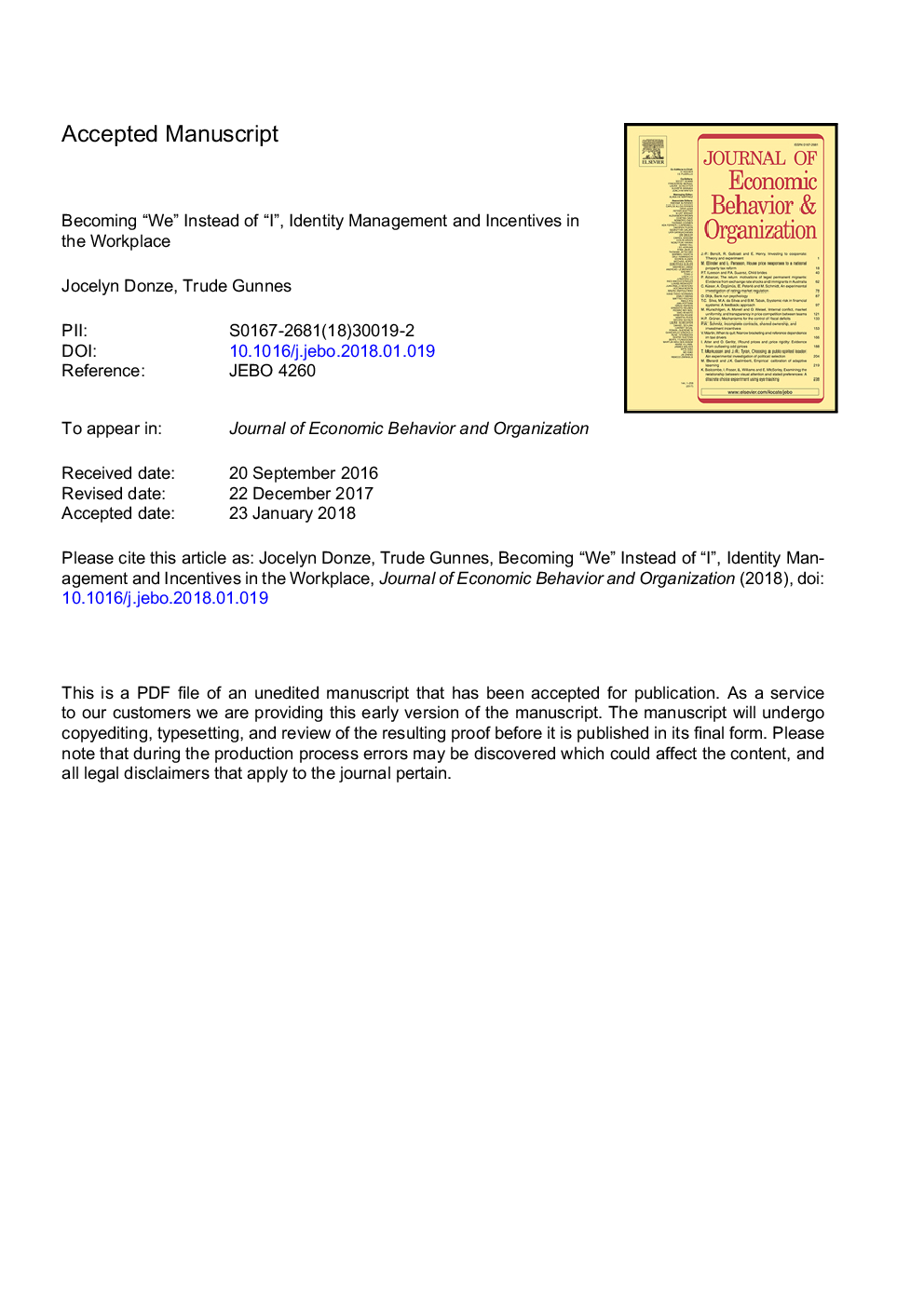| Article ID | Journal | Published Year | Pages | File Type |
|---|---|---|---|---|
| 7242611 | Journal of Economic Behavior & Organization | 2018 | 36 Pages |
Abstract
In this article, we show that the firm can be viewed as a locus of socialization wherein employees with heterogeneous work attitudes can be motivated and coordinated through adherence to a social norm of effort. We develop an agency model in which employees have both a personal and a social ideal of effort. The firm does not observe the personal ideals, but can make its workforce more sensitive to the social ideal by fostering social interaction in the workplace. We show that there are two reasons why the firm invests in social bonding. First, it reinforces the effectiveness of monetary incentives and increases average effort. Second, strengthening the social ideal reduces the adverse selection problem and the need for distorted compensation schemes. We further show that the firm allocates more time to social interaction when personal ideals of effort are low or heterogeneous. How work norms make people more similar (and predictable) and how this affects optimal incentive schemes has not yet received much attention in the literature.
Related Topics
Social Sciences and Humanities
Economics, Econometrics and Finance
Economics and Econometrics
Authors
Jocelyn Donze, Trude Gunnes,
